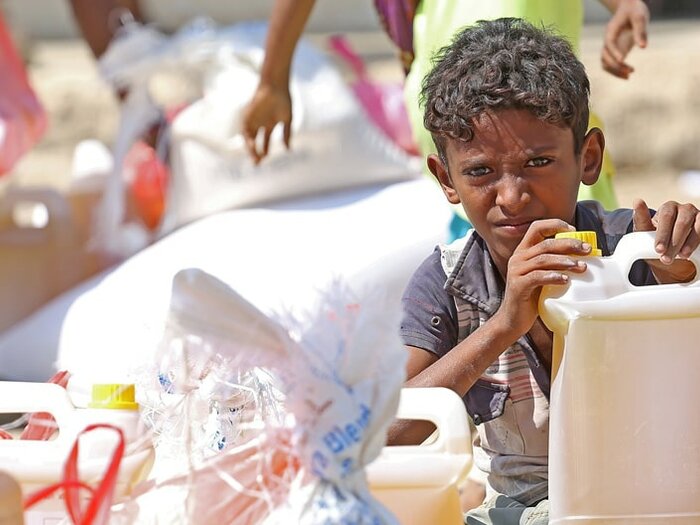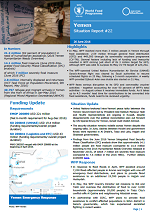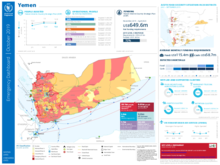Emergency
Yemen
- 18.2 million
- need humanitarian assistance in 2024
- 17.6 million
- people are food insecure
- US$448 million
- funding needed for WFP from October 2024 to March 2025
A decade of conflict in Yemen has created one of the world's most severe humanitarian crises.
The conflict, coupled with economic downturns and recurring disease, has left a staggering 17.6 million people food insecure. A total of 4.5 million people are internally displaced, many of whom live in camps. Despite a brief truce in 2022, which alleviated tensions and improved humanitarian access, the situation remains dire and requires urgent action.
WFP supplies much of the logistics capacity for the humanitarian response in Yemen, supporting other UN agencies and NGOs.
WFP’s food assistance and the continued support of donors have been instrumental in keeping famine at bay. However, we urgently need to secure additional funding, with operations requiring US$448 million from October 2024 to March 2025.
What the World Food Programme is doing to respond to the Yemen emergency
-
Food assistance
-
WFP's primary focus is on targeted emergency food assistance, providing rations to food-insecure households across Yemen. WFP provides food through thousands of distribution points across the country.
-
Cash assistance
-
WFP uses cash assistance in areas where markets are stable enough to provide for communities’ basic food needs. Using a biometrics system, people receive cash equal to the value of the food basket provided to families. Much higher food prices in the south versus the north of Yemen mean the cash amount is different. Cash assistance injects much-needed liquidity into the economy.
-
Nutrition
-
WFP supports children and pregnant and breastfeeding women and girls, through a moderate acute malnutrition treatment programme and a prevention of acute and chronic malnutrition programme. WFP also provides technical assistance and training in nutrition treatment to Ministry of Public Health and Population staff and community health volunteers.
-
School meals
-
WFP provides primary schoolchildren with fortified date bars or fortified biscuits each day they attend school. WFP also runs a Healthy Kitchens project, providing locally sourced and freshly prepared school meals.
-
Logistics
-
The WFP-managed UN Humanitarian Air Service carries humanitarian workers between five key hubs in Yemen and the region. In addition, the Logistics Cluster enables regular sea and air transport for humanitarian cargo between Aden, Hodeidah, Sana’a and Djibouti.




